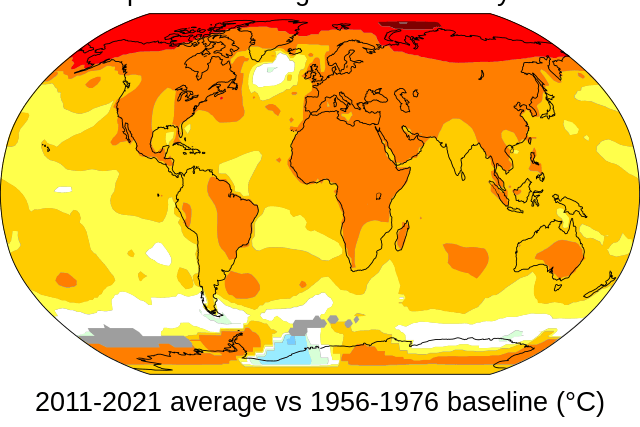
The United Nations Secretary-General has issued a stark warning, declaring that the situation of “climate change is spiralling out of control.”
This dire pronouncement coincides with an official analysis of data revealing that the global climate reached unprecedented levels of heat in July, solidifying its position as the hottest month on record.
“If we persist in delaying key measures that are needed, I think we are moving into a catastrophic situation, as the last two records in temperature demonstrates,” António Guterres said.
July 2023 emerged as a searing anomaly, with temperatures surpassing the 1991-2020 average for the same month by a staggering 0.72°C. This alarming deviation is further accentuated by the fact that it exceeded the previous record holder, July 2019, by 0.33°C. Notably, estimations indicate that July’s temperatures were approximately 1.5°C higher than the average for the period between 1850 and 1900.
The significance of these findings is unequivocal, signalling that the Earth’s climate is venturing into uncharted and alarming territory.
Scientific consensus underscores the convergence of two factors—anthropogenic global heating and the resurgence of the El Niño phenomenon—as drivers behind these unprecedented temperatures. This grim prognosis was substantiated by the United Nations’ recent announcement of the reemergence of El Niño, a sporadic climatic event. The most recent major El Niño occurrence, observed in 2016, stands as the record holder for the warmest year on record.
According to Samantha Burgess, Deputy Director of the Copernicus Climate Change Service (C3S): ” We just witnessed global air temperatures and global ocean surface temperatures set new all-time records in July. These records have dire consequences for both people and the planet exposed to ever more frequent and intense extreme events.”
“2023 is currently the third warmest year to date at 0.43ºC above the recent average, with the average global temperature in July at 1.5°C above preindustrial levels. Even if this is only temporary, it shows the urgency for ambitious efforts to reduce global greenhouse gas emissions, which are the main driver behind these records.”
“It is not a surprise”
“News of the warmest month on record perhaps shouldn’t come as a surprise, said Chris Hewitt, Director of Climate Services at the World Meteorological Organization, during UN media briefing on 8 August. WMO’s latest annual State of the Climate Report stated that 2015 to 2022 were the eight warmest years on record, and this is on the back of a clear warming decade-on-decade. As we continue to see continued increases in concentrations of greenhouse gases in the atmosphere, this long-term warming will continue and temperature records will continue to be broken.”
A comparative assessment of year-to-date averages for the period spanning January to July reveals compelling insights. The global mean temperature for 2023 ranks as the third highest on record, measuring at 0.43°C relative to the baseline of 1991-2020. In comparison, the years 2016 and 2020, known for their extreme warmth, recorded slightly higher averages of 0.49°C and 0.48°C, respectively.
The projected trajectory for the remainder of 2023 is poised to further close the gap between 2023 and 2016. As the current El Niño event unfolds, the latter months of the year are anticipated to be marked by elevated temperatures, thus likely reducing the difference in average temperatures between these two critical years.
——————————————————————————
At Natural World Fund, we are passionate about stopping the decline in our wildlife.
The decline in our wildlife is shocking and frightening. Without much more support, many of the animals we know and love will continue in their decline towards extinction.
When you help to restore a patch of degraded land through rewilding to forests, meadows, or wetlands, you have a massive impact on the biodiversity at a local level. You give animals a home and food that they otherwise would not have had, and it has a positive snowball effect on the food chain.
We are convinced that this is much better for the UK than growing lots of fast-growing coniferous trees, solely to remove carbon, that don’t actually help our animals to thrive.
This is why we stand for restoring nature in the UK through responsible rewilding. For us, it is the right thing to do. Let’s do what’s right for nature!
Donate today at https://naturalworldfund.com/ and join in the solution!

